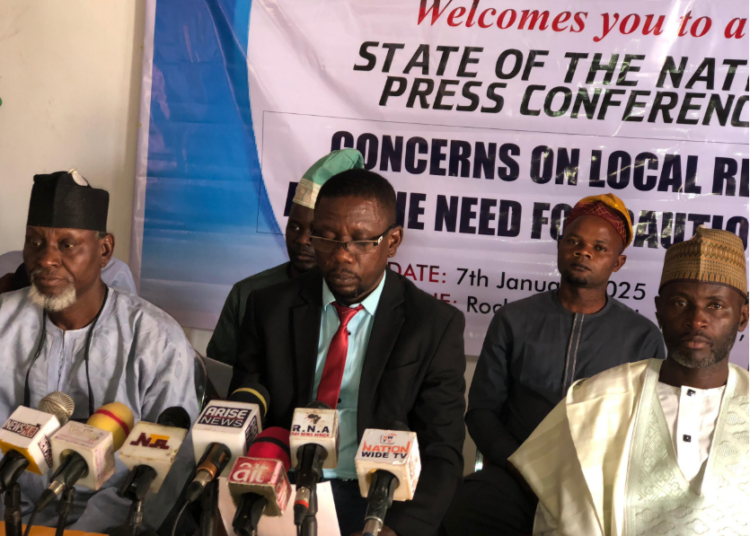A group of concerned Nigerian citizens has called on the Nigerian National Petroleum Company Limited (NNPCL) to prioritise crude oil supply to local refineries, including the Dangote Refinery, over foreign partners.
At a press conference on Tuesday in Abuja, the group expressed concern over reports that the NNPCL plans to cut down on crude oil supply to the Dangote Refinery from 300,000 barrels per day.
In an address by its national coordinator, Obinna Francis, the group alleged that this move is part of a larger scheme to monopolise the oil sector and frustrate local investors.
Francis noted that the removal of fuel subsidies has led to increased hardship and suffering for Nigerians, with a hike in the price of Premium Motor Spirit (PMS) leading to a rise in the prices of goods and services across the country.
They also expressed concern over the NNPCL’s claim that the Warri and Port Harcourt Refineries are operational and producing at 60-70% capacity.
They questioned the basis for this claim, noting that the refineries have not produced a single liter of fuel.
Francis argued that the Dangote Refinery has been making efforts to make petroleum products affordable for Nigerians and that reducing its crude oil supply would undermine this effort.
The refinery’s operations, they noted, are not a burden to taxpayers, unlike the government-owned refineries.
The citizens called on President Bola Tinubu to intervene in the matter, stating that the NNPCL’s actions may be misconstrued as having the president’s consent.
Francis added: “Citizens are no longer surprised that the NNPCL has been insisting that the Warri and Port Harcourt Refineries are operating at between 60 to 70 per cent operational capacity. It is clear now that the game from the beginning was to pave the way and create an angle of plausible engagement aimed at reducing the quota of crude that is expected to go the Dangote Refinery.
“We argued that the coming upstream of the Warri and Port Harcourt refineries is not expected to cut down allocation to local refineries. The naira for the crude agreement was purely an intervention at the time to boost local production and then provide some cushion from the volatility of the foreign exchange market. It was not so much about the crude but the FX.
“If the Warri and Port Harcourt refineries are coming on stream, it is expected that it will make the price of petrol affordable for Nigerians and not become a stumbling block and a basis for adjustments of crude.”





